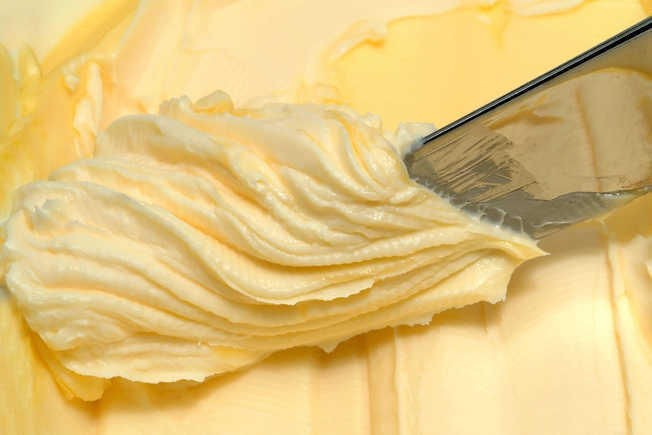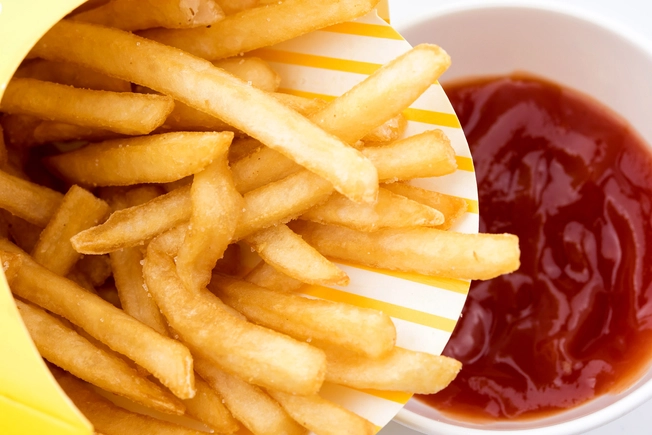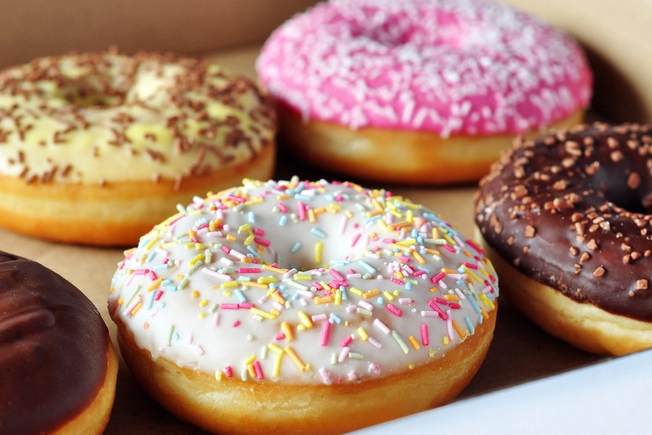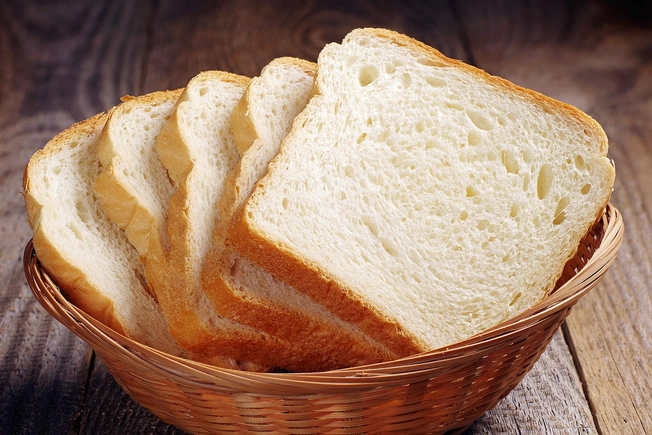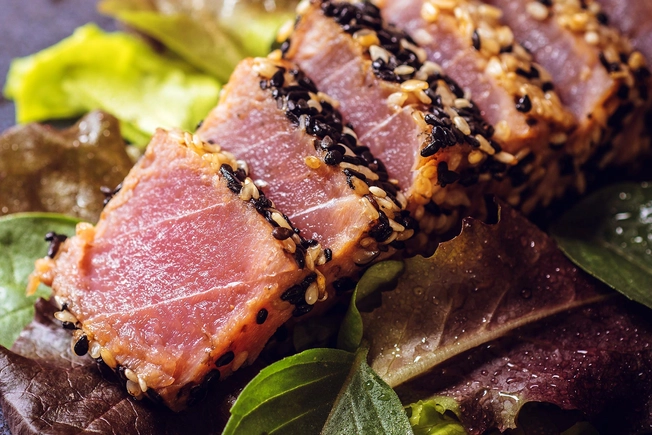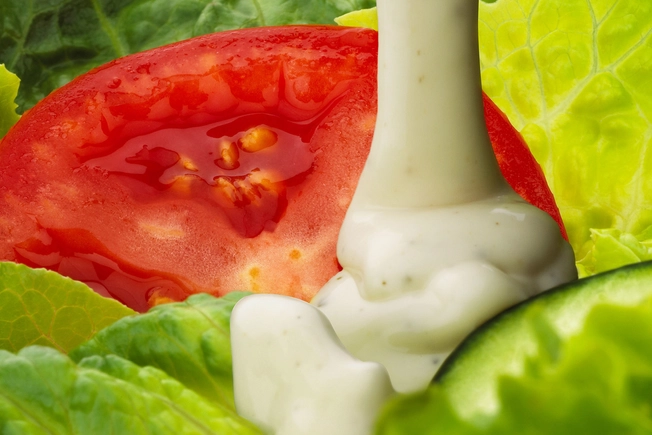Throughout the United States, high cholesterol is a common issue. According to the Centers for Disease Control and Prevention, two in five American adults deal with the condition, putting them at increased risk of stroke and heart attack.

Cholesterol is a waxy substance that circulates in your blood. It isn’t necessarily dangerous on its own ― we need cholesterol to help us build cells and make hormones. But too much of it can cause problems. Excess cholesterol in the blood, for example, is the main factor in the creation of atherosclerosis, said Dr. Eleonora Avenatti, a preventive cardiologist at Houston Methodist Hospital, which is “the build-up of junk inside your vessels.”
“If you think about your vessel as pipes that have to bring blood to your internal organs — your heart, your brain, your kidneys — over time, [cholesterol] can create junk inside those pipes so that the blood flow is not as good as it should be. Then that can create situations such as heart attacks and strokes and kidney dysfunction,” Avenatti said.
Your cholesterol is measured via a blood test (known as a lipid panel), which is ordered by your doctor. If your cholesterol is high, you may be prescribed medication or lifestyle changes, like diet and exercise.
One of the most natural changes starts with food. Experts say certain foods can impact your cholesterol levels, putting you at risk for the adverse events mentioned above.
Below, experts share the foods you should avoid if you have high cholesterol, plus share some factors that may be even more important than the food you eat.
Full-fat dairy

Full-fat dairy is high in saturated fat, which is not good for your LDL, which is often referred to as the “bad” cholesterol.
“Saturated fat can actually decrease your body’s ability to clear out … the bad cholesterol,” explained Beth Auguste, a registered dietician in Philadelphia and owner of Be Well with Beth. “Your bad cholesterol goes to your liver to get cleaned up and that’s how you remove some of the cholesterol in your body. That saturated fat impacts your liver because it makes it so that you can’t break down the bad cholesterol as much.
Dairy does have some health benefits, so you can reduce this particular issue by incorporating lower-fat dairy products into your diet where possible.
“Choose fat-free dairy products like yogurt and kefir to reduce saturated fat intake while still obtaining essential heart-healthy nutrients like magnesium, calcium and vitamin D,” Michelle Routhenstein, a preventive cardiology dietitian at EntirelyNourished.com, told HuffPost via email.
Additionally, Auguste said you can add healthy, unsaturated fats to your fat-free dairy products by topping things like fat-free yogurt or cottage cheese with almonds or chia seeds. “That gives you the healthy fat to go along with the dairy protein,” Auguste said.
Red meat

You likely know that red meat ― such as beef, pork or lamb ― is not great for folks with high cholesterol. Why? Red meat is high in saturated fat, which, as mentioned above, makes it hard for your body to break down cholesterol, Auguste said.
This doesn’t mean you should never, ever eat red meat, but those with high cholesterol should thoughtfully consider their intake.
“Honestly, in general, you should be using your meat more as the garnish with the meals and then having beans as another way of getting protein, having high-protein grains, like quinoa or lentils … as a way of supplementing the protein and the iron and the fiber in your meal,” Auguste said.
Skin on meat

Saturated fat is also high in meat skins, according to Auguste. This goes for the skin of all meat, whether it’s chicken skin, turkey skin, pork rind (pig skin) or something else, she noted.
“Opt for lean sources of protein such as poultry without the skin, fish, legumes (beans, lentils, chickpeas) and tofu. These protein sources are lower in saturated fat and can help maintain muscle mass while promoting heart health,” Routhenstein said.
What’s more, Auguste noted, it’s important to look for skinless ground meats as well.
Highly processed foods

“What we’ve been learning more and more is that staying away from processed food is probably the best way to go,” Avenatti said.
While many foods are processed in some form, minimally processed foods (like packaged salads and bagged dry beans) are not the culprit here. Instead, highly processed foods, such as smoked sausage and chips, should give you pause.
“They are usually also high in unhealthy fats and salt and low in fiber, vitamins and minerals, which is a detrimental combination from a cardiovascular health standpoint,” according to Avenatti.
“If my patients are craving that meaty feeling, please go for the steak by all means. But something that is so processed, like a sausage, that really doesn’t have any more [of] that nutritional balance that was present in the primordial meat, that is something you should probably stay away from,” Avenatti said.
“For these reasons, a diet rich in ultra-processed foods is recommended against by all major [cardiovascular] societies that recommend instead a ‘whole food’ approach,” she noted.
Fried foods

Similarly, fried foods are a good thing to avoid if you have high cholesterol, according to Routhenstein. Fried foods can also contain trans fats, which can increase your bad cholesterol levels, along with your overall risk of heart disease.
This includes both sweet and non-sweet fried foods, like fried chicken, doughnuts and french fries, according to the Mayo Clinic. To determine if the food you’re eating contains trans fats, look for partially hydrogenated oils listed on the ingredients label.
Other ways you can prioritize your heart health

“I would be happy if I could tell you that it all depends on the food we eat,” Avenatti said. “But, unfortunately, that is really not the case … the food we eat contains cholesterol, but the majority of the cholesterol is running in our blood, and it’s … actually produced by our own body.”
The variability from one person to another depends more on genetics and how our body deals with cholesterol than dietary choices, Avenatti explained.
“We like to talk more about patterns just because no food is absolutely damaging. I think eating in moderation … is still the key,” she said.
What you eat the majority of the time is more important than a one-off burger or steak. Additionally, as long as you aren’t eating a diet that’s only fried food and processed food, you likely are OK.
“[One-off food choices are] really less impactful than what people think as long as you remain within a reasonable diet,” she said.
But for people with high triglycerides, dietary choices are extra important. According to Avenatti, high triglycerides, which are also measured when your cholesterol is checked, are more connected to the food that you eat.
“Processed food, fried food, butter, any sort of shortening, full-fat dairy, cheeses ― those are all things that are going to impact for sure your triglyceride levels, and that we see a lot more being directly impacted by diet,” she said.
High triglycerides can also be impacted by refined carbohydrates, Auguste added. “So, if you’re eating a lot of white bread, white pasta, crackers that have no fiber in them, you want to think about how to add fiber when you’re eating because that’s going to help you not have high triglycerides.”
This could mean mixing white beans in with your pasta or switching to a chickpea pasta or lentil pasta, Auguste added.
For some people, medication may also be necessary to lower cholesterol. As mentioned, genetics play a major role in your cholesterol levels, and altering your diet can only do so much
While many folks complain about the side effects of cholesterol-lowering medications known as statins, Avenatti stressed that there are other medical options out there. If you’ve been prescribed a medication for high cholesterol and either don’t take it or don’t like its effects, Avenatti said you should go to your doctor and ask why they prescribed the medication they did and inquire about alternatives.
Overall, following a heart-healthy lifestyle that’s complete with exercise, nutritious food, enough sleep and medicine management (if necessary) is important.
Avenatti recommends the American Heart Association’s Life’s Essential 8 guidelines to help stay on top of your cardiovascular health. These guidelines combine a range of healthy lifestyle interventions, including diet, sleep, exercise, quitting tobacco use and more.

